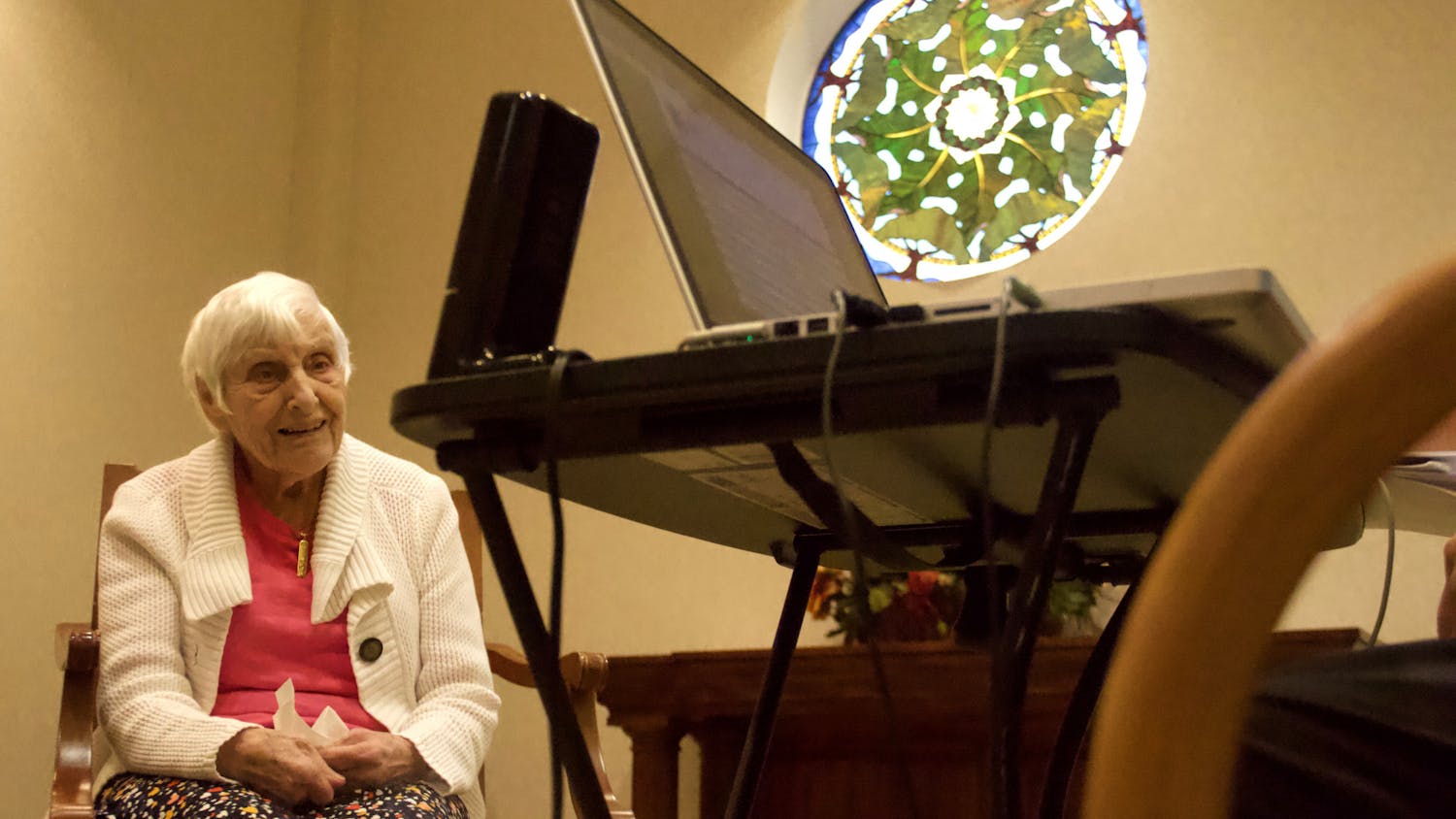The end is near.
With the last full week of school upon us, the end of the semester marks a time when students wait until the last minute and stay up all night cramming for final exams and projects.
To help stay sane during exam week, here are some tips from UF registered dietitian and nutritionist Janis Mena and Tina Long, health promotion specialist at UF’s GatorWell.
People don’t plan to fail; they fail to plan.
The first piece of advice GatorWell offers is don’t put yourself in a position to pull an all-nighter because you may not be alert and focused by the time of your exam. Unfortunately, if you haven’t managed your time well or have spread yourself too thin, staying up late and hunkering down on your schoolwork may be your only option.
Before you hit the books, have a plan. Use the last full week of school to prioritize how and when you will finish everything you need to get done, Long said.
Long recommends finishing the most immediate and urgent assignments first.
In addition to planning each individual task, plan to have at least a five-minute break every hour. According to suite101.com, breaks help clear and relax the mind during long study sessions.
For future semesters, Long said that if you are a full-time student, treat it as a full-time job. Although you may not have class 40 hours a week, schedule your extracurricular meetings and study time along with the amount of class time you have so that it equals to 40 hours a week, she said.
Although this strategy sounds restricting at first, the more organized you are will give you more time for other things, she said.
“Most of us at some point in our lives will have to transition into a 40-hour work week anway,” Long said. “By prioritizing and committing 40 hours a week to studying and class, you will have more time for leisurely pursuits on weekends.”
Food and Drink
If you plan to study for extended periods of time, especially late at night, you’ll need to give your body the proper fuel.
1. You can drink caffeine, just limit how much you take in.
Drinking a couple of pots of coffee over several hours isn’t the end of the world, Mena said. But binging on energy drinks like Red Bull, Monster and Doubleshots from Starbucks will make you crash and keep you awake long after you’ve gone to bed.
Caffeine-habituated individuals can experience “caffeine withdrawal” 12-to-24 hours after the last dose of caffeine. It resolves within 24-to-48 hours. The most prominent symptom is a headache. They can also feel anxiety, fatigue, drowsiness and depression. According to the American Heart Association
2. Eat more protein and less carbs.
Simple carbohydrates, like chocolate and sugar, give you a quick boost in energy and will make you crash just like caffeine.
Instead, eat more protein like a meaty sandwich, nuts or cheese as protein will be a more consistent source of energy without the crash. Mena suggests eating snacks every three hours you are awake so that you stay focused and don’t under or overeat.
3. Drink plenty of water
Just like when you exercise, drinking plenty of water will keep your stamina up when you study.
4. Block it out
Now that you have your game plan and have plenty of food and drink to keep you going, it’s time to eliminate distractions. Log out of Facebook, Twitter, YouTube and turn off your phone and find a quiet place to study.
If you are worrying about other stressors like having your car towed outside of Library West and cannot concentrate on studying, take care of those other things first, Long said.
Suite101.com recommends avoiding studying in cozy places like your bed or couch as you will be more likely to fall asleep, and switch study spaces every so often to stay awake and focused. Study groups can be helpful as long as the group does not distract you from concentrating and getting your work done.
Also, classical music has been long viewed as a study aid in relaxing students and drowning out other distracting noises.
5. It’s not the end of the world
According to Long, keeping a positive attitude and putting things in perspective in the long run will help you focus and not become too stressed out during long study periods.
“At the end of the semester, we may have to do things that we don’t love, but there’s always a means to an end. Treat each thing as a learning experience. Also, ask yourself, ‘What’s the worst that can happen?’” she said.
Even if a class is failed, it can always open the door to new opportunities.





